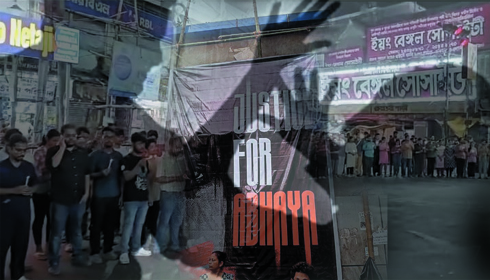
Conspiracy Theories and Politicisation: The Dark Underbelly of West Bengal’s Public Health Facilities
The terrible rape and murder of a young resident doctor at Kolkata's RG Kar Hospital has sparked a firestorm of conspiracy theories on social media, raising serious concerns about politicisation and corruption in West Bengal's medical community. As the Central Bureau of Investigation (CBI) takes over the investigation, the emphasis has turned to discovering the murky activities behind the scenes in the state's public medical colleges and hospitals.
On Wednesday, fifteen principals and senior doctors from the state's public medical institutions met. The conversation focused on recent distressing developments, with a special emphasis on the deteriorating conditions at RG Kar Hospital. During the discussion, tensions rose when a principal reported a disturbing event in which a member of the ruling party allegedly used harsh language against another principal. This disclosure, given in front of a room full of senior medical specialists, only fuelled concerns about the state's current course.
In a particularly frightening claim, a female doctor who runs a hospital in South Bengal described receiving a threatening phone call from a doctor well-known for his closeness to the state's ruling dispensation. According to media reports, the caller, who was also affiliated with the state's ethics committee and medical council, allegedly threatened her children if she continued to raise concerns about ongoing wrongdoing. The doctor's evidence offered a bleak picture of the power dynamics at work, with medical personnel coerced into silence.
The Indian Medical Association's state committee has filed a formal complaint describing these occurrences, expressing rising concern over alleged corruption and undue political influence in the medical community. However, many people are curious about Chief Minister Mamata Banerjee's response, as she also serves as Health Minister. Most medical practitioners believe that the system has become a fertile ground for extortion and malpractice.
Reports indicate that a restricted group of pupils routinely receives leaked exam questions, enabling them to cheat with phones and laptops. During a recent meeting, the principal of a North Bengal medical college revealed that a teacher had distributed exam questions even before the exam began. This disclosure prompted immediate action by the Health University, which removed one invigilator from their post during a professor's exam at another college in North Bengal. However, the unexpected transfer of the whistleblower instructor to another region raised concerns about the potential punitive nature of the action.
The involvement of Dr. Sandip Ghosh, a major actor in this complex network of corruption, has drawn great attention. Despite being evacuated twice from RG Kar Hospital, he was able to avoid permanent reassignment, frequently returning within a short period. This pattern of behaviour has prompted many to think that corruption runs deep within the RG Kar Hospital.
Tragically, it's believed that the young doctor's outspoken opposition to these fraudulent practices led to her death. Allegations have surfaced that she was aware of the corruption rife in medical colleges and expressed her dissatisfaction. Some stories suggest that the perpetrators may have carried out their gruesome act in retaliation for the corrupt operations she pledged to expose.
The situation has sparked significant protests across the state, with residents from diverse sectors demanding accountability for the horrible events at RG Kar Hospital and calling for the health minister's resignation. These occurrences have put the state administration in jeopardy as suspicions of conspiracy and corruption continue to surface.
As the CBI investigates the case further, the broader implications of these conspiracy ideas become clear. The unfortunate death of a young doctor has served as a rallying point for people seeking transparency and honesty in West Bengal's medical community. It is unclear how these disclosures will affect the future of healthcare in the state, but the necessity for a comprehensive and unbiased probe has never been greater.